-
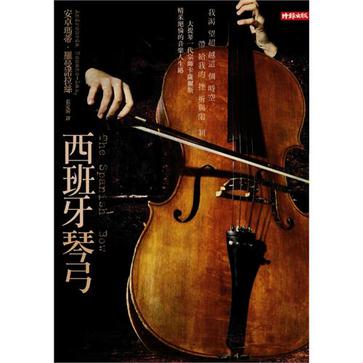
西班牙琴弓
一百多年前,一個十三歲的男孩在巴塞隆納的二手樂譜店發現一本被世人遺忘的樂譜──巴哈大提琴獨奏組曲(即無伴奏大提琴組曲),他帶回家苦練多年後公開演奏,豔驚了世人,那位男孩就是西班牙著名大提琴家卡薩爾斯(Pablo Casals,1876-1973),對20世紀大提琴演奏影響最鉅的人,開創大提琴獨奏的輝煌時代。《西班牙琴弓》以這位音樂家的事蹟為藍本,小說中化名為菲利武‧德拉哥,描寫他一生高潮迭起的音樂生涯,以及他如何堅守信念反對西班牙極權政府而自我放逐國外。 19 世紀末、20 世紀初的西班牙,在曾經輝煌的帝國逐漸沒落時,菲利武結識了鋼琴怪傑阿爾-賽拉茲,隨著西班牙內戰爆發,兩位音樂家大相逕庭的藝術目標和政治傾向使他們幾乎分道揚鑣,然而義大利女小提琴家艾璧華的出現改變了他們的命運,三人在音樂、理念、生活和情感上不可分離地糾纏在一起,他們一步步走向生涯中最危險的聯合演出…… 小說中的角色人名、年代和情節皆虛實交錯,取材自真實人物的包括軍事狂人希特勒與佛朗哥、西班牙國王阿方索十三世和王后伊娜、畫家畢卡索等,作者企圖擺脫真實歷史的束縛,讓真實與虛構交織出這部充滿音樂韻律和戲劇張力的故事,正如卡薩爾斯發現巴哈的無伴奏大提琴組曲後企圖從中尋找自我啟發,而以自己的時空感受來詮釋出古典的美,小說家亦將卡薩爾斯的生平以我們這個時代的時空意義演繹出動人的故事。 -
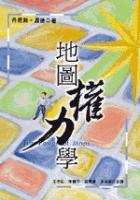
地圖權力學
每個人都用過地圖,但地圖真的很精確嗎?或是純粹功能性的嗎?本書作者認為每一張地圖都反應了繪圖者的偏見和選擇,其實都是溝通、說服、權力的工具。在本書中,我們從兒童的想像圖、中世紀的地圖、十九世紀的街道圖、衛星雲圖及各種圖標中,可以看出各張地圖背後的世界觀、社會觀與權力的運作。 -
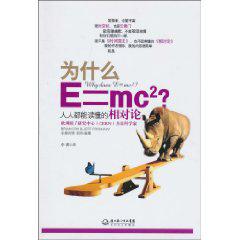
为什么E=mc2
伟大神奇的相对论终于脱下艰涩难懂的外衣向读者走来。欧洲核子研究中心两位顶级科学家用轻松易懂的语言带你一同畅游相对论的奇幻世界。 重温科学巨人带着可贵的想象力质疑亚里士多德、牛顿创造相对论的曲折历程,你会是下一个勇于突破,走向未来的人吗? -
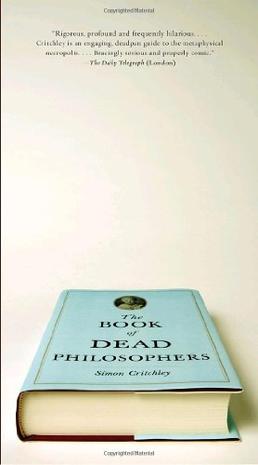
The Book of Dead Philosophers
“To philosophize is to learn how to die.” —Cicero; assassinated by order of Mark Antony “One who no longer is cannot suffer.” —Lucretius; suicide, allegedly driven mad by a love potion “Life is solitary, poor, nasty, brutish, and short.” —Hobbes; died in bed, age 91 In this collection of brief lives (and deaths) of nearly two hundred of the world's greatest thinkers, noted philosopher Simon Critchley creates a register of mortality that is tragic, amusing, absurd, and exemplary. From the self-mocking haikus of Zen masters on their deathbeds to the last words of Christian saints and modern-day sages, this irresistible book contains much to inspire both amusement and reflection. Informed by Critchley's acute insight, scholarly intelligence, and sprightly wit, each entry tells its own tale, but collected together they add up to a profound and moving investigation of meaning and the possibility of happiness for us all. -
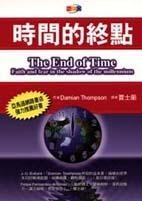
時間的終點
本书首先指出「千禧年」和「天启」信仰在袄教、希伯来宗教和基督教中的根源,然后探讨这些信念一再造成的社会政治爆发事件 -
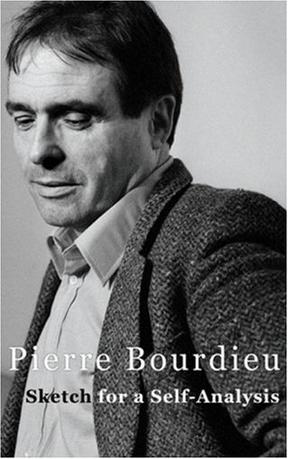
Sketch for a Self-analysis
′This is not an autobiography.′ *Pierre Bourdieu′s commitment to a reflexive sociology led him ineluctably to take on the final challenge of a self socio–analysis in which he recounts and analyses, more fully and intimately than ever before, his understanding of the trajectory that led him from the peasant world of Barn, through sometimes painful years as a lyce boarder, as a student in 1950s Paris and as a conscript in the Algerian War, to the pinnacle of the French intellectual and academic world. ′This is not an autobiography,′ he said of this work but it reveals much of the hitherto implicit experience of his formative years, and gives precious insights into his relationships with Jean–Paul Sartre, Raymond Aron, Michel Foucault and many others, which deepen our understanding of his unique contribution to sociology and anthropology.